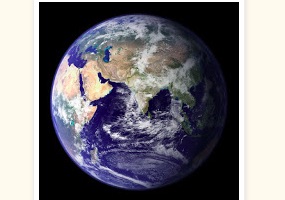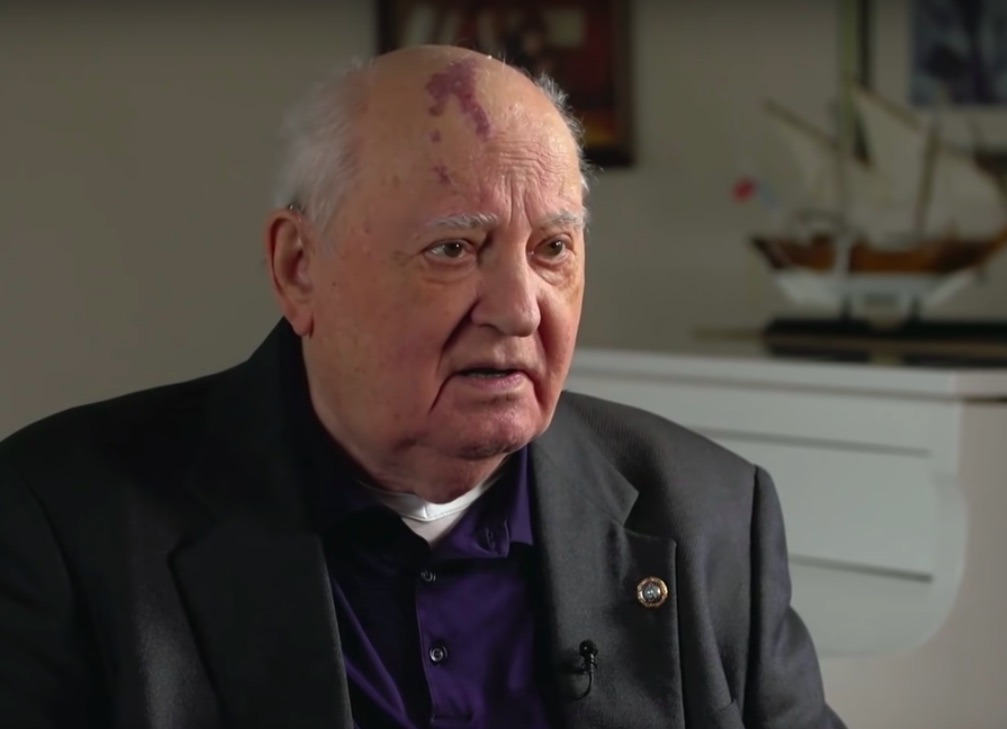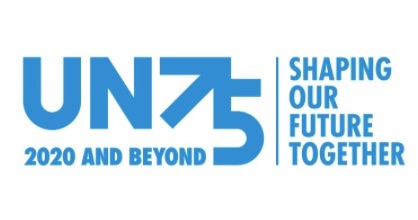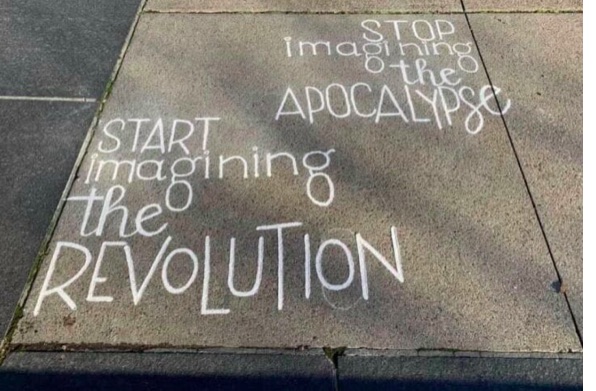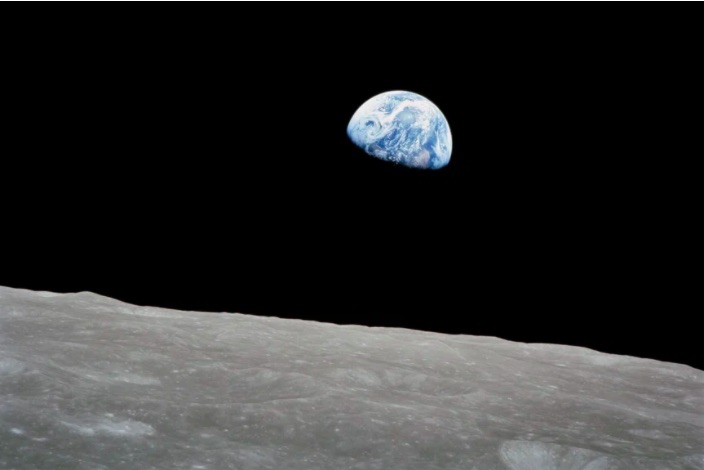DISARMAMENT & SECURITY .
An article by David Swanson in Pressenza (licensed under a Creative Commons Attribution 4.0 International license)
When a few thousand people were murdered on September 11, 2001, I was actually stupid enough – I kid you not – to imagine that the general public would conclude that because massive military forces, nuclear arsenals, and foreign bases had done nothing to prevent and much to provoke those crimes, the U.S. government would need to start scaling back its single biggest expense. By September 12th it was clear that the opposite course would be followed.

Louisiana National Guard Soldiers and Airmen test first responders for COVID-19 infections at Louis Armstrong Park, New Orleans, Louisiana, March 20, 2020. The testing site is one of three across New Orleans and Jefferson Parishes and will soon open to the general public. (Image by Staff Sgt. Josiah Pugh)
Since 2001, we have seen the U.S. government dump over a trillion dollars a year into militarism, and push the rest of the world to expend another trillion dollars a year, much of it on U.S.-made weapons. We’ve seen the creation of permawars, and the normalization of long-distance, push-button murder with drone wars. All of this has generated more terrorism in the name of fighting it. And it has come at the expense of actual defense.
A government agency aimed at actually defending people from actual dangers would cease activities that are counter-productive, that cause major environmental and climate destruction, and that consume resources that could be put to good use. Militarism meets all of those criteria.
Coronavirus will kill many more than a few thousand people, even just in the United States. The death toll there may fall between 200,000 and 2,200,000. That high figure would be 0.6% of the U.S. population, which compares with 0.3% of the U.S. population killed by World War II, or 5.0% of the Iraqi population killed in the war begun in 2003. The low figure of 200,000 would be 67 times the death count from 9-11. Should we expect to see the U.S. government expending $67 trillion a year on health and wellness? Even one sixty-seventh of that, even a mere trillion a year spent where it’s actually useful could work wonders.
The microscopic little virus, just like the men with boxcutters on airplanes, is simply not addressed by military spending. On the contrary, the environmental destruction of militarism and of the dominant global culture as a whole very likely contributes to the mutation and spread of such viruses. Factory farming and carnivorism likely contribute as well. And at least some diseases, such as Lyme and Anthrax, have been spread by military labs doing openly offensive or supposedly defensive work on bioweapons.
A Department of Actual Defense, as opposed to a Department of War renamed Defense, would be looking very hard at the twin dangers of nuclear and climate apocalypse, and the accompanying spin-offs like coronavirus. I don’t mean looking at them with an eye to militarizing borders, getting more oil out of the arctic as the ice melts, demonizing immigrants to sell more weapons, or developing “smaller” and “more usable” nukes. We have all of that sociopathy already. I mean looking at these threats in order to actually defend against them.
The biggest dangers include:
* poor health, and poor diets and lifestyles that contribute to poor health,
* particular diseases and ecosystem destruction that contributes to them,
(Article continued on the right column)
Question for this article:
Does military spending lead to economic decline and collapse?
How can we work together to overcome this medical and economic crisis?
(Article continued from the left column)
* poverty and financial insecurity that lead to poor health and to the inability to take necessary steps against a disease like coronavirus,
* suicide, and the unhappy lives and mental illness and access to guns that contribute,
* accidents, and the transportation and workplace policies that contribute,
* War is a top cause of death where there are wars. Foreign terrorism is nowhere remotely near a top cause of death in nations that wage distant wars.
The disastrous response that we are seeing from the U.S. and other governments to the current disaster should put to rest once and for all the notion that people will automatically become better and wiser once things get bad enough.
Those proclaiming empire over and capitalism dead should get a grip on themselves. Capitalism is thriving, as is empire. A culture that has spent decades preparing to act badly when the COVID-19 hits the fan cannot be made to be acting wisely simply by declaring it so.
But acting disastrously is not inevitable. It’s a choice, albeit a difficult one to change quickly. It’s popular to predict that climate collapse will cause war, but climate collapse can’t cause a war in a culture that doesn’t use war. What causes war, or insider trading and pandemic profiteering, or negligent mass homicide is the preparation of systems designed for those things and for nothing else.
We could prepare a society and a government for positive steps instead. A Department of Actual Defense would need to be global, not national, but a national government could do a cheap imitation of parts of it that would be wild improvements over what we’re seeing now. Such a department might encompass what’s been conceived of as a Department of Peace, an agency aimed at moving from violence to nonviolence. But a Department of Actual Defense would also be dedicated to preventing all major harm.
Imagine if everyone on earth right now had financial security and top medical care. We would all be better off in many ways. That task may sound dreamy or visionary, but it is actually radically smaller than the task of building the militaries that have been built in recent years.
Imagine if climate collapse were being treated like the urgent emergency that coronavirus is now understood to be. Climate collapse should have been treated that way many years ago. The sooner it is, the easier things will be. The later, the harder. Why choose the harder road?
Imagine if the nuclear doomsday clock being closer to midnight than ever before were addressed appropriately, with some hint of interest from human governments in human survival. That’s a project that costs nothing and saves billions — so, feel free to mock it, but not to scream howyagonnapayforit. Nobody screams that for military-sized corporate bailouts anyway.
A Department of Actual Defense would not be a military attacking a different enemy. The problem of disease or illness is one to be addressed as much by improved environment, lifestyle, and diet as by medicine, and by an approach to medicine that attempts all solutions whether or not they resemble “attacking” the “enemy” virus.
A Department of Actual Defense would train pro-environment workers, disaster-relief workers, and suicide-prevention workers in the tasks of protecting the environment, relieving disasters, and preventing suicide, as opposed to training and arming them all to kill large number of people with weapons but then assigning them to other tasks. We don’t need a military redirected but disbanded.
What humanity needs is not a better militarism, but a better humanity.
Discuss this on this webinar on April 7.


